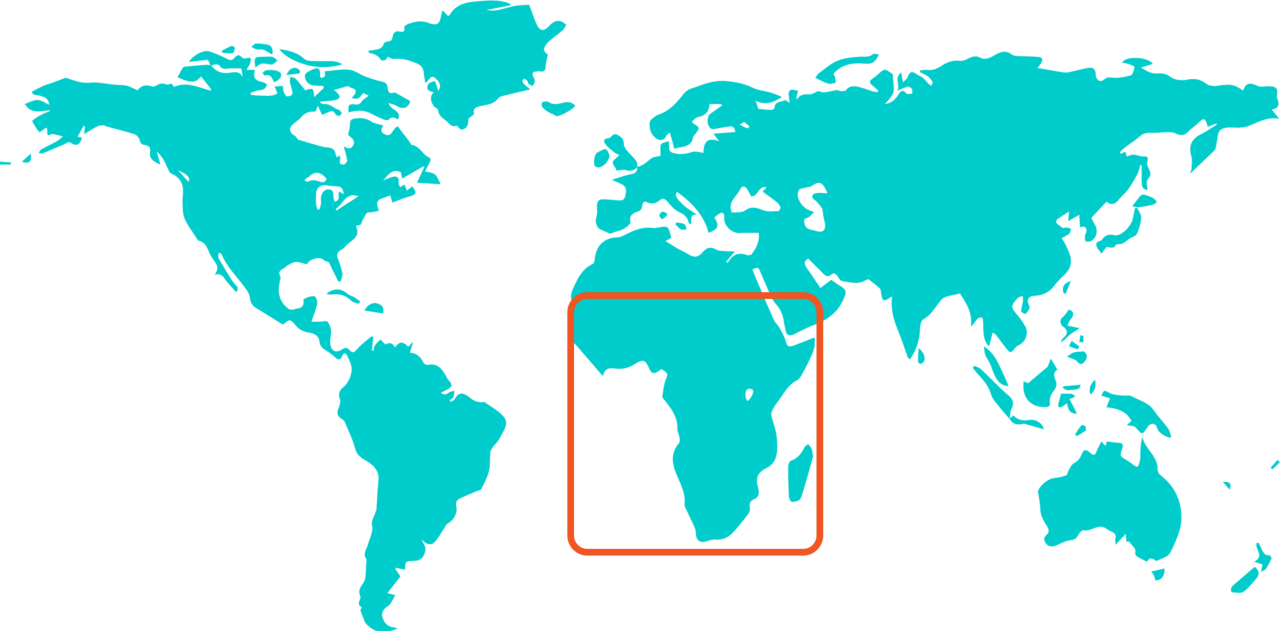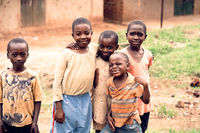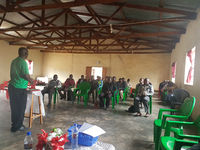The situation of children in Africa
Over 400 million children are currently living on the African continent - and the number is rising. Africa's child population will reach 1 billion by 2055, making it the largest child population among all continents.
In some African countries, such as Uganda, Angola, Mali, Niger, or the Democratic Republic of Congo, half of all inhabitants are still under 15 years old.
Growing up without a mother and father - that's the sad reality for 15 million children in sub-Saharan Africa. The disease HIV / AIDS has taken one or even both parents. They live with relatives or on the street, without a home.
More than 30 percent of children in Africa suffer from the consequences of chronic malnutrition: physical and mental development disorders affect their daily lives. They are often too small for their age, suffer from heart disease, kidney damage, and have a very weak immune system that is very difficult to ward off diarrhea or pneumonia.
Hunger, poverty, violence, and armed conflicts mean that millions of African children are fleeing - alone or with their families. War is raging in many countries of the African continent: millions of children are living in constant terror and violence.
Many children in Africa are excluded from school and contribute to the livelihood of their families instead. Experts estimate that a total of 30 million children in sub-Saharan Africa do not attend school. 54 percent of them are girls.
Africa has the largest number of child laborers; 72.1 million African children are estimated to be in child labor and 31.5 million in hazardous work.
Africa Without Orphans works to:
- Collaborate with the church and other relevant stakeholders to ensure non-duplication in services, sustainability, and the most significant reach and positive impact on children.
- Education and training: equipping the church and community with family strengthening, trauma, child abuse, and non-violent/positive parenting skills.
- Advocacy & Lobbying: influencing mindsets, social norms, and attitudes about the importance of children living in the family rather than childcare facilities. Lobbying for the reintegration of children with biological families where it is safe to do so. Promotion of fair legal adoption processes and the implementation and enforcement of laws that prevent child abuse.
- Empowerment: Churches and communities are engaged in an approach that enables them to take ownership of the children and families in their communities, to see the role they can play in identifying solutions to the plight of their members who are threatened with family separation.
- Prevention: Creating SAFE families, streets, communities, churches, schools, families, digital and other environments where children can thrive. Encourage organizations impacting children to have safe child policies in place to ensure children are protected from harm.
- Emotional and Spiritual Wellbeing: Creating healing and refreshing environments whereby members can live refreshed, avoid burn-out and serve people from a place of abundance.
"Source: UNICEF, SOS Children's Villages International".




